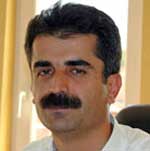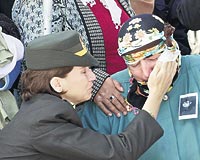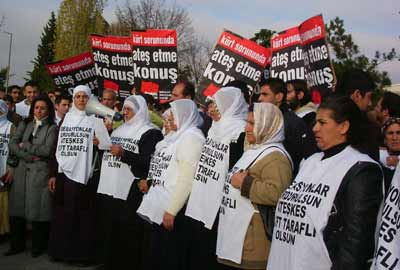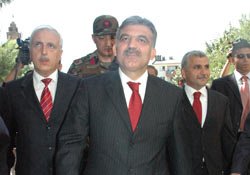In the last few weeks, Turkey has been debating "preparations for a return home" [for PKK members]. It is said that the government is preparing a new law in order to bring "those in the mountains" back down.
The Law No. 4959 passed on 29 July 2003 was entitled "Law to Bring (Them) Back into Society", in order to avoid the term "regret".
However, it was not effective. Thus, Article 221 of the Turkish Penal Code , which aimed at "regret", "informants", "return home" and "bringing them back into society", was reorganised and now speaks of "active remorse."
Lack of information not the issue
Cemil Cicek, state minister and government spokesperson, said in a recent interview: "Kandil [i.e. PKK members on Kandil mountain] does not know Article 221," thus finally acknowledging that the article has not fulfilled its purpose.
However, the problem is not only that "those in the moutains do not know Article 221." The problem is greater than that, and Article 221 and its implementation has been problematic.
Why is it that "remorse", "return home" or "bringing them back into society" laws have been unsuccessful?
The most important reason is the "legal conditions" which force people to "announce remorse", "confess", "help to bring down the organisation", or "name supporters".
Conscience should be irrelevant
What is the aim of forcing people who sincerely and of their own free will want to leave the organisation through a court to say "I am remorseful"? It is illogical to force people from an "Eastern society" like Turkey, whose members have problems apologising or showing remorse because of personal mistakes, to do so in the context of "organised crime".
A state or judiciary who is not out for revenge would not bother about people's conscience.
Unable or unwilling to name others
There are thousands of people who have no chance of making use of this law because they do not have the information to "lead to the capture of members of the organisation" or to "lead to the dispersal of the organisation". For these people, the law has been "born dead".
The law has been unsuccessful for all of those people who have thought about leaving the organisation, but who do not want to harm anyone else - and after all, most people of average intelligence who have honour and a conscience would act like that. No one, even in the name of "returning home" wants to be part of a legal condition which leads to the arrest of others.
The condition of "naming those aiding and abetting the organisation" is also controversial. It is very difficult to know in the mountains who helps the organisation voluntarily. It cannot be expected of any villager to resist the threats of an armed organisation in a region where the state cannot provide safety. One of the results of the lack of success in the "fight against terrorism" has been that villagers who gave bread to the armed organisation have filled up the prisons.
Unacceptable involvement of Ministry
Up to now, the judiciary has always asked the Ministry of Interior who would be allowed to benefit from the remorse/return home laws. This has also been the case with Article 221. First of all, this situation is incongruous with an independent judiciary and leads to interference in the judiciary process. In the majority of cases, the Ministry of the Interior has not allowed members of the organisation to benefit from the law. Even if the attitude has softened a bit in the last one or two years, this is still the routine response.
In some cases, the ministry has not seen a "sufficient degree of remorse" or has found the "information given to be insufficient." And although the judge is independent, decisions conform with the opinions of the Ministry of the Interior. [...] This is another reason for the lack of success of the innumerable laws passed.
No social provisions
Finally, there have been no provisions made in terms of work, social adaptation etc. for those wanting to come down from the mountains and return to their families and society. It is clear that a law which does not make social provisions and which does not prepare society for accepting those coming from the mountains cannot be effective.
In summary: there needs to be a radical change of Article 221. Whether a person has committed a crime or not, whether s/he has taken part in activities or not, whether s/he is a leading or ordinary member of the organisation, a new law encouraging all the citizens of the Turkish Republic in the mountains to return and guaranteeing amnesty must be prepared. Conditions must be created which allow for all problems, particularly the Kurdish question, to be discussed freely. (HA/TK/AG)









